We support local, national and EU intitutions with innovative design and management practices to:
- Increase trust
- Align expectations and purpose
- Move from vision to action
- Increase collaboration
- Re-balance and optimize workflows
- Initiate change processes
- Discover innovation pathways
- Integrate innovation with core business
- Manage crisis
We design processes that allow stakeholders to participate to policy development and to be engaged in their own communities:
- Citizens and experts policy workshops
- Vision and foresight exercises
- Project-based community building and management – communities of practice
- Narrative-based monitoring and evaluation
- Bottom-up participatory processes
Livepods make available the complexity-aware processes, methods and products developed in several years of service to EU institutions.
Three formats allow to reach unexpected results, with increasing levels of commitment.
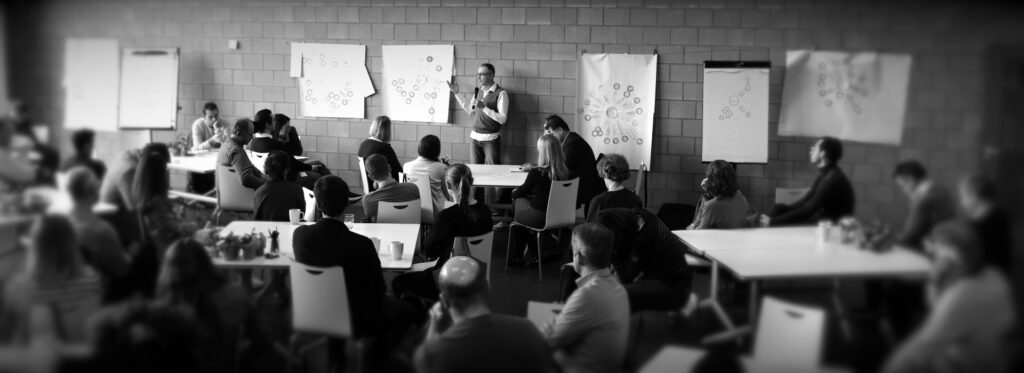
Policy labs as one-time sessions
A one-off exercise to set the foundations of your change process.
From half-day to week-long sessions, this format sets the foundation of your change process. It maps the current state of play of the policy area from the perspectives of your policy units and key stakeholders. It also helps you to identify the most likely agents of change and their constraints, a key insight to inform your strategy.
In terms of commitment, this is a one-off exercise that can rely entirely on external resources and therefore the least expensive option to introduce change.
We also prepare you to follow-up the event, to manage and fulfill the expectations and the creative energy that this format generates.

Policy labs as change processes
A plan of activities to change or align cultures, or to design and deliver complex policy instrument.
This format coordinates distinct activities into a process that spans across several months to achieve behavioral change and to improve delivery. It requires you to dedicate internal resources that are proportional to the magnitude of the process, from one to several full-time equivalents.
We privilege customized, non-linear open processes, with short cycles of delivery, continuous monitoring and frequent evaluations. The phases of the process are designed with you and with your purpose in mind and may include (in an order that matches your process):
- Delivery
- Evaluation
- Scoping
- Monitoring
- Discovery
- Development
- Design
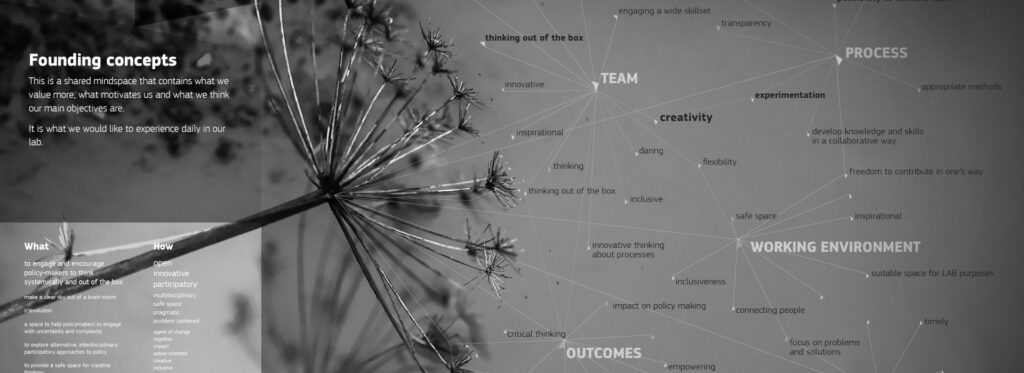
Policy lab as a permanent structure
This format is the top-of-mind “go-to” solution for most organizations. It has, however, some important drawbacks.
Setting up organizational structures (i.e. an innovation office space and/or a dedicated unit) is often a signal of serious commitment to change and innovation processes.
However, permanent, physical structures are best set up in presence of supporting, established innovative practices at the level of the organizational level. A new structure in itself does not necessary facilitate organic change processes, infact it may create unnecessary tensions.
In addition, a physical policy lab may be dependent on the political priorities of the moment and may not resist changes in the administrative structure, because of its cost.
If you want to increase the success rate of a structural policy lab, we help you start with a de-centralized, distributed, informal approach, while organically introducing simple but strategic change processes for the entire organization.
This approach is equally effective for new or existing Labs.
Current and past experiences

State chancellery’s Innovation Lab, Latvia
Strategic advice on the development of the Policy Innovation Lab. Strategic sessions in Brussels with high level policy-makers on specific policy issues to demonstrate innovative methods.
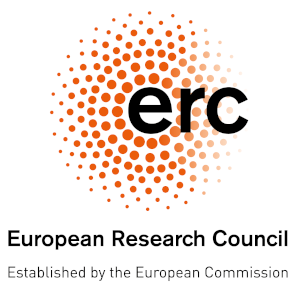
ERCEA
Strategic support at director’s level to move from priorities to concrete action in collaboration with middle management.
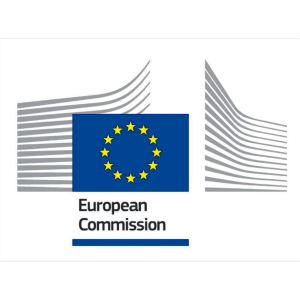
DG JRC
Strategic advice on the creation of a forecast and awareness system for migration and demography.

EISMEA
Constraints mapping session at unit level to improve collaboration, align priorities and identify innovative activities.

DG INTPA
Constraints mapping sessions at unit level to improve collaboration, align priorities and identify innovative activities.

DG GROW
Strategic session at directorate level to improve collaboration, align priorities and identify innovative activities in cooperation with middle management.
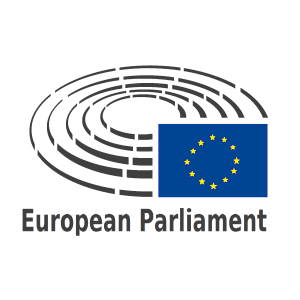
EMAS unit
Two-day strategy session. Constraint mapping to align the unit and reinforce priorities plus agile management practices to re-balance workload.

